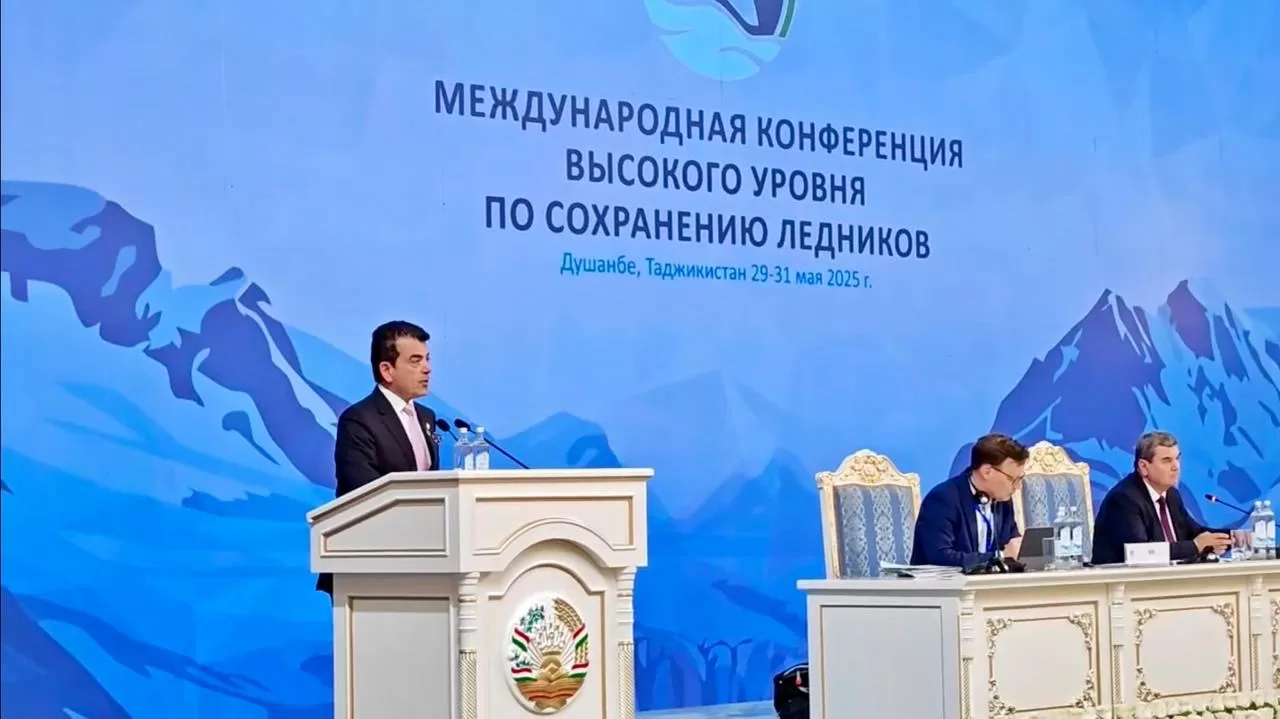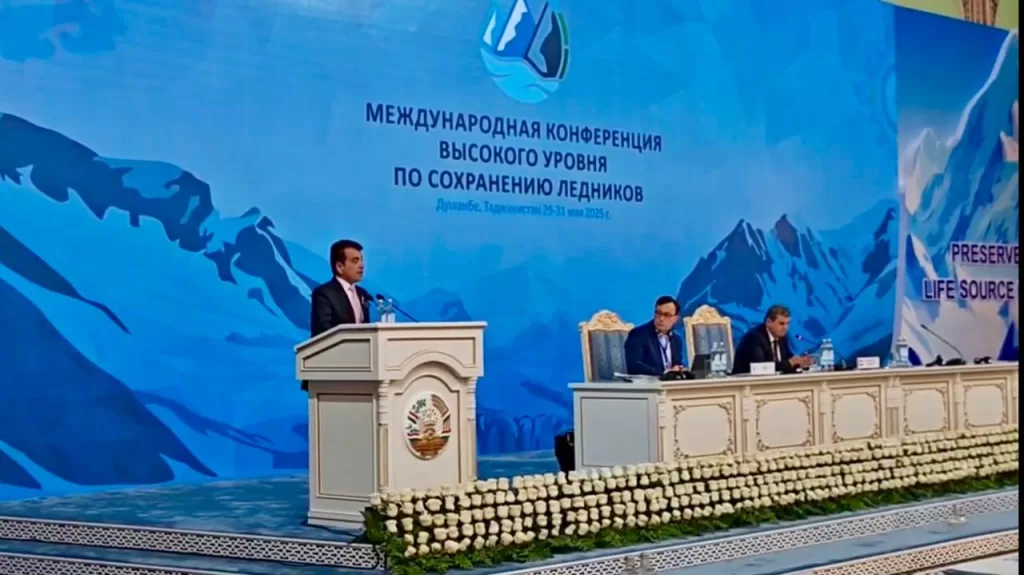
ICESCO Director-General Commends Tajikistan’s Glacier Conservation Vision, Urges Global Action

31 May 2025
In his address to the High-Level International Conference on Glacier Conservation, held from 29 to 31 May 2025 in Dushanbe, the capital of Tajikistan, Dr. Salim M. AlMalik, Director-General of the Islamic World Educational, Scientific and Cultural Organization (ICESCO), praised the forward-looking vision of H.E. Mr. Emomali Rahmon, President of the Republic of Tajikistan, who has made the issue of glaciers a national and international priority.
Dr. AlMalik pointed out that, thanks to the vision of its President, Tajikistan has established itself as a key player in global water diplomacy, playing the role of guardian of one of the largest glacier reserves in Central Asia. He also recalled that President Rahmon’s initiative, behind the United Nations’ proclamation of the “International Decade for Action on Water for Sustainable Development” (2018–2028), marked a decisive turning point in the mobilization of global efforts to tackle one of the greatest environmental challenges of our time.
ICESCO’s Director-General pointed out that over the last fifty years, the world has lost more than a third of its glaciers, with Central Asia alone losing almost 30% of its glaciers since the 1960s, noting that Tajikistan’s glaciers supply more than 60% of the water resources of the Amu Darya basin, a vital source for more than 43 million people.

In view of this pressing situation, Dr. AlMalik called for immediate collective action, stating: “The figures are alarming, but they bear a common call to unite science with solidarity, and development with sustainability.”
In this spirit, he announced ICESCO’s full commitment to supporting Tajikistan’s efforts, including the implementation of scientific research and joint glacier monitoring programs; the launch of an educational campaign in Member States to raise environmental awareness among young people; support for local knowledge and traditional practices in water resource management; and the creation of a regional glacier data observatory to serve the whole of Central Asia.
In conclusion, Dr. AlMalik commended the efforts of H.E. President Emomali Rahmon in holding this crucial conference, noting that the initiative embodies Tajikistan’s moral leadership and highlights the profound harmony between its people and its natural environment. He called for inspiration to be drawn from this model and for united efforts to protect what remains of the glaciers and restore the ecological balance of our planet.




